Busting The Most Common Swimming Pool Maintenance Myths
If you own a swimming pool, you must spare some serious thought towards its maintenance. However, if you're looking to others or the internet for advice regarding pool maintenance, you may come across certain myths masquerading as maintenance tips.
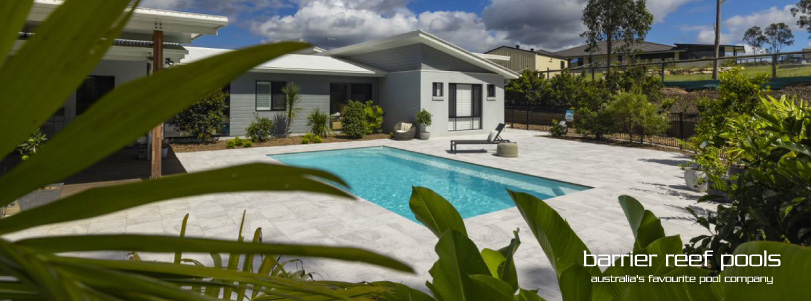
In this article, we're going to dispel some of the most common swimming pool maintenance myths. So, if you want to take the best possible care of your swimming pool, read on.
1. Investing in a pool heater isn't worth it due to the expenses involved
There was once a time when pool heating solutions used to be ridiculously expensive. However, those times are long gone. Sure, there still are some incredibly costly options available in the market, but there’s no dearth of affordable options. Take solar pool heaters for example – they rely on sunlight for providing heat to swimming pools, which makes them highly efficient.
If you live in a region that experiences harsh winters, you could also consider investing in a pool heat pump. Unlike solar pool heaters, pool heat pumps are electricity-driven. Their operational costs are a bit higher compared to solar pool heaters, but as long as you use one wisely, you can keep the expenses in check. So, don’t shy away from pool heating systems and solutions simply because you heard someone say that they’re not worth investing in due to high expenses.
2. Maintaining a pool is difficult
While there’s some truth to this myth, the fact is that you’ll make maintaining your pool difficult for yourself if you don’t maintain it at all. Ideally, you should spare at least one day every week to see if your swimming pool is in good condition. Some of the things you need to look out for include:
- The pool’s water chemistry, i.e. the right balance of pool chemicals
- The condition of the pool equipment
- Signs of microorganism growth
As long as you’re diligent about pool maintenance from one week to the next, you’ll find that maintaining your pool isn’t as hard as most people make it out to be. All in all, it’s fair to say that you’ll need to set aside 3 – 4 hours every week to care for your pool, which shouldn’t be very hard, right?
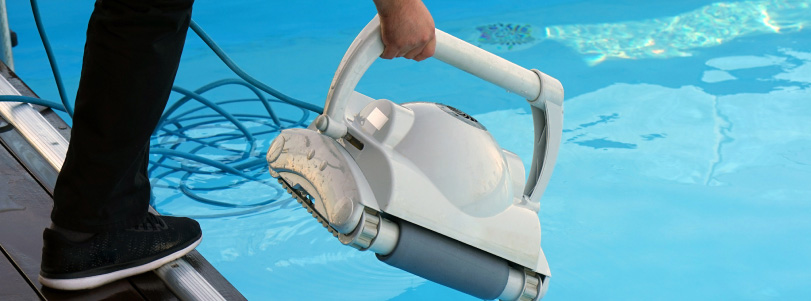
3. Chlorine use isn't safe
Chlorine is one of the most widely used chemicals for maintaining swimming pools. The chemical plays an important role in eliminating microorganisms that may be present in the pool water. So, there’s no doubt about it – chlorine use is crucial if you want swimming in your pool to be a safe experience for you and your family.
However, you need to remember that you should use chlorine in moderation and as per requirements. For instance, if you add excessive amounts of chlorine to your swimming pool, i.e. well beyond what’s needed, you may end up jeopardizing the safety of your pool. So, as long as you’re careful with your chlorine use, you’ve got nothing to worry about.
4. Showering before taking a dip in the pool makes no sense
Many people are of the opinion that taking a shower before entering a swimming pool is a waste of time. However, let us tell you that this opinion is not based on facts. According to science, when you enter a swimming pool without showering, you take your sweat, body oils, cosmetics, and other organic compounds into the water.
Over time, these organic compounds can build up inside your swimming pool and eventually make your pool water dirty. They can also contribute to the growth of microorganisms in the pool water. However, when you take a shower, these organic compounds are washed away. So, remember to take a 5-minute shower before you enter your pool the next time – you’ll be saving your pool and yourself a lot of trouble.
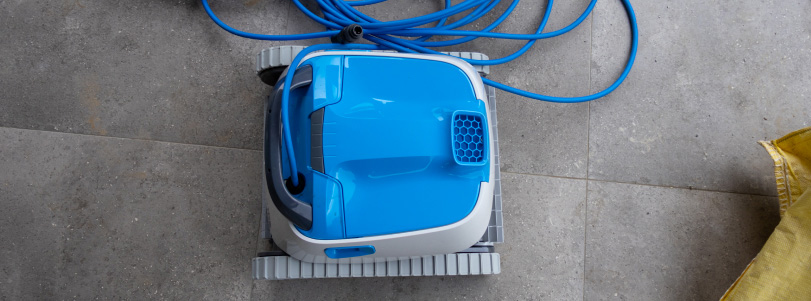
5. Automated pool cleaners are much better than manual pool cleaning methods
It’s the age of automation and there’s no doubt about the fact that an automated pool cleaner can provide a great degree of convenience. However, while automated pool cleaning systems and solutions are much more convenient than manual methods, it’s not right to say that they are better.
Sure, you can invest in a robotic pool cleaner and program it to clean your pool whenever you want. It’ll also probably do a good job. However, when it comes to cleaning a swimming pool, good may not always be good enough. What you should ideally aim for is a thorough cleaning, and this can only be achieved through manual cleaning methods like vacuuming and scrubbing.
6. Pool water chemistry isn't affected by rainwater at all
The first few minutes of a long spell of rainfall typically consist of raindrops that have high acid content. This can have a direct impact on your pool’s alkalinity and pH. Quite simply, rainwater can disturb your pool’s water chemistry. Don’t believe us? Leave your pool open the next time there’s rain or a storm in your area, and check it the next day.
You’ll find that the water has turned a bit greenish and cloudy. This will be due to the acid content carried by the rain and deposited in your pool water. So, our advice would be to protect your pool during rainfall. Even if you can’t prevent the rain from entering your pool, you should waste no time and test the water as soon as the rain stops. The quicker you take action, the better it will be for your swimming pool.
7. There's no chlorine requirement for saltwater pools
Again, this is a myth that has an element of truth to it. The fact is that you don’t need to add chlorine manually to a saltwater pool. However, this doesn’t mean that saltwater pools don’t need chlorine at all.
Saltwater pools need chlorine just like freshwater pools do, but the difference between the two lies in a device known as saltwater chlorinator. Most saltwater pools come with this device as a part of the package, and it converts salt into chlorine.
To Conclude
So, there you have it – 7 of the most common swimming pool maintenance myths, busted! Before you invest in a pool, be sure to do proper research into which pool style would best suit your needs as well as all the maintenance requirements that would be required.
Busting The Most Common Swimming Pool Maintenance Myths
If you own a swimming pool, you must spare some serious thought towards its maintenance. However, if you're looking to others or the internet for advice regarding pool maintenance, you may come across certain myths masquerading as maintenance tips.
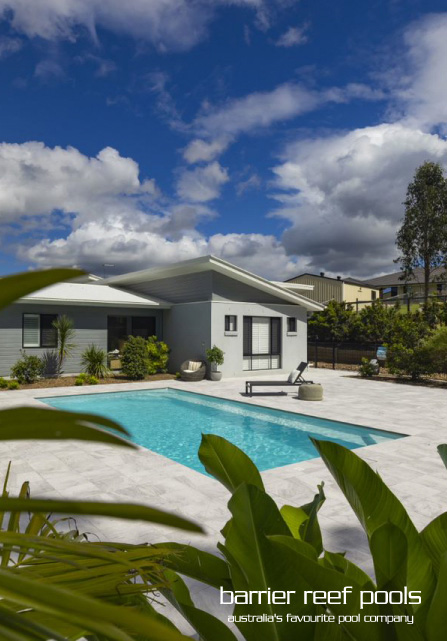
In this article, we're going to dispel some of the most common swimming pool maintenance myths. So, if you want to take the best possible care of your swimming pool, read on.
1. Investing in a pool heater isn't worth it due to the expenses involved
There was once a time when pool heating solutions used to be ridiculously expensive. However, those times are long gone. Sure, there still are some incredibly costly options available in the market, but there’s no dearth of affordable options. Take solar pool heaters for example – they rely on sunlight for providing heat to swimming pools, which makes them highly efficient.
If you live in a region that experiences harsh winters, you could also consider investing in a pool heat pump. Unlike solar pool heaters, pool heat pumps are electricity-driven. Their operational costs are a bit higher compared to solar pool heaters, but as long as you use one wisely, you can keep the expenses in check. So, don’t shy away from pool heating systems and solutions simply because you heard someone say that they’re not worth investing in due to high expenses.
2. Maintaining a pool is difficult
While there’s some truth to this myth, the fact is that you’ll make maintaining your pool difficult for yourself if you don’t maintain it at all. Ideally, you should spare at least one day every week to see if your swimming pool is in good condition. Some of the things you need to look out for include:
- The pool’s water chemistry, i.e. the right balance of pool chemicals
- The condition of the pool equipment
- Signs of microorganism growth
As long as you’re diligent about pool maintenance from one week to the next, you’ll find that maintaining your pool isn’t as hard as most people make it out to be. All in all, it’s fair to say that you’ll need to set aside 3 – 4 hours every week to care for your pool, which shouldn’t be very hard, right?
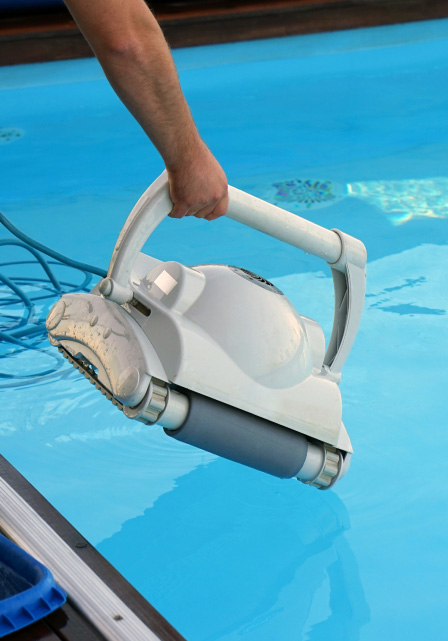
3. Chlorine use isn't safe
Chlorine is one of the most widely used chemicals for maintaining swimming pools. The chemical plays an important role in eliminating microorganisms that may be present in the pool water. So, there’s no doubt about it – chlorine use is crucial if you want swimming in your pool to be a safe experience for you and your family.
However, you need to remember that you should use chlorine in moderation and as per requirements. For instance, if you add excessive amounts of chlorine to your swimming pool, i.e. well beyond what’s needed, you may end up jeopardizing the safety of your pool. So, as long as you’re careful with your chlorine use, you’ve got nothing to worry about.
4. Showering before taking a dip in the pool makes no sense
Many people are of the opinion that taking a shower before entering a swimming pool is a waste of time. However, let us tell you that this opinion is not based on facts. According to science, when you enter a swimming pool without showering, you take your sweat, body oils, cosmetics, and other organic compounds into the water.
Over time, these organic compounds can build up inside your swimming pool and eventually make your pool water dirty. They can also contribute to the growth of microorganisms in the pool water. However, when you take a shower, these organic compounds are washed away. So, remember to take a 5-minute shower before you enter your pool the next time – you’ll be saving your pool and yourself a lot of trouble.
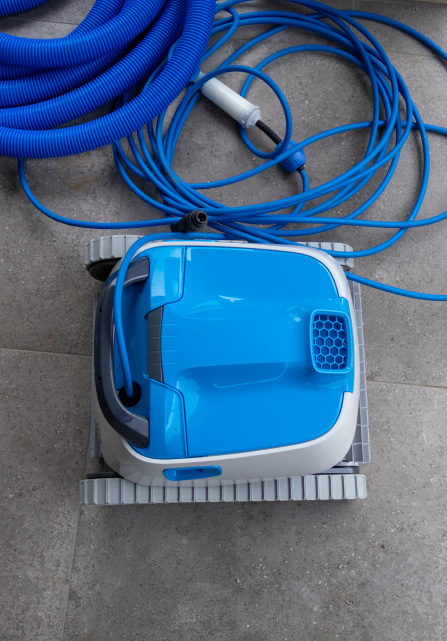
5. Automated pool cleaners are much better than manual pool cleaning methods
It’s the age of automation and there’s no doubt about the fact that an automated pool cleaner can provide a great degree of convenience. However, while automated pool cleaning systems and solutions are much more convenient than manual methods, it’s not right to say that they are better.
Sure, you can invest in a robotic pool cleaner and program it to clean your pool whenever you want. It’ll also probably do a good job. However, when it comes to cleaning a swimming pool, good may not always be good enough. What you should ideally aim for is a thorough cleaning, and this can only be achieved through manual cleaning methods like vacuuming and scrubbing.
6. Pool water chemistry isn't affected by rainwater at all
The first few minutes of a long spell of rainfall typically consist of raindrops that have high acid content. This can have a direct impact on your pool’s alkalinity and pH. Quite simply, rainwater can disturb your pool’s water chemistry. Don’t believe us? Leave your pool open the next time there’s rain or a storm in your area, and check it the next day.
You’ll find that the water has turned a bit greenish and cloudy. This will be due to the acid content carried by the rain and deposited in your pool water. So, our advice would be to protect your pool during rainfall. Even if you can’t prevent the rain from entering your pool, you should waste no time and test the water as soon as the rain stops. The quicker you take action, the better it will be for your swimming pool.
7. There's no chlorine requirement for saltwater pools
Again, this is a myth that has an element of truth to it. The fact is that you don’t need to add chlorine manually to a saltwater pool. However, this doesn’t mean that saltwater pools don’t need chlorine at all.
Saltwater pools need chlorine just like freshwater pools do, but the difference between the two lies in a device known as saltwater chlorinator. Most saltwater pools come with this device as a part of the package, and it converts salt into chlorine.
To Conclude
So, there you have it – 7 of the most common swimming pool maintenance myths, busted! Before you invest in a pool, be sure to do proper research into which pool style would best suit your needs as well as all the maintenance requirements that would be required.
Busting The Most Common Swimming Pool Maintenance Myths
If you own a swimming pool, you must spare some serious thought towards its maintenance. However, if you're looking to others or the internet for advice regarding pool maintenance, you may come across certain myths masquerading as maintenance tips.
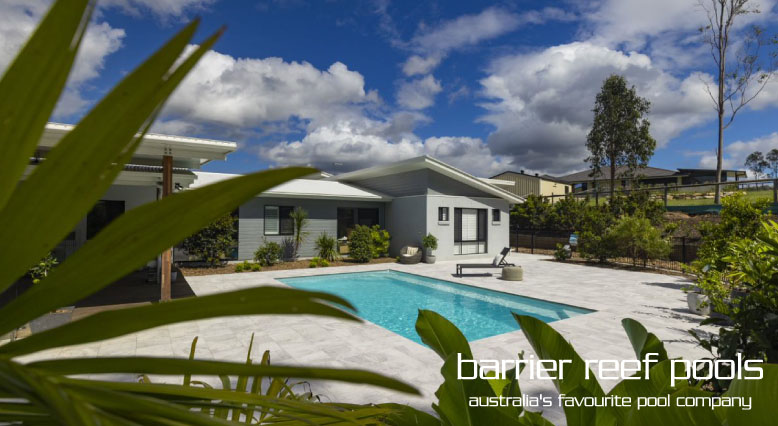
In this article, we're going to dispel some of the most common swimming pool maintenance myths. So, if you want to take the best possible care of your swimming pool, read on.
1. Investing in a pool heater isn't worth it due to the expenses involved
There was once a time when pool heating solutions used to be ridiculously expensive. However, those times are long gone. Sure, there still are some incredibly costly options available in the market, but there’s no dearth of affordable options. Take solar pool heaters for example – they rely on sunlight for providing heat to swimming pools, which makes them highly efficient.
If you live in a region that experiences harsh winters, you could also consider investing in a pool heat pump. Unlike solar pool heaters, pool heat pumps are electricity-driven. Their operational costs are a bit higher compared to solar pool heaters, but as long as you use one wisely, you can keep the expenses in check. So, don’t shy away from pool heating systems and solutions simply because you heard someone say that they’re not worth investing in due to high expenses.
2. Maintaining a pool is difficult
While there’s some truth to this myth, the fact is that you’ll make maintaining your pool difficult for yourself if you don’t maintain it at all. Ideally, you should spare at least one day every week to see if your swimming pool is in good condition. Some of the things you need to look out for include:
- The pool’s water chemistry, i.e. the right balance of pool chemicals
- The condition of the pool equipment
- Signs of microorganism growth
As long as you’re diligent about pool maintenance from one week to the next, you’ll find that maintaining your pool isn’t as hard as most people make it out to be. All in all, it’s fair to say that you’ll need to set aside 3 – 4 hours every week to care for your pool, which shouldn’t be very hard, right?
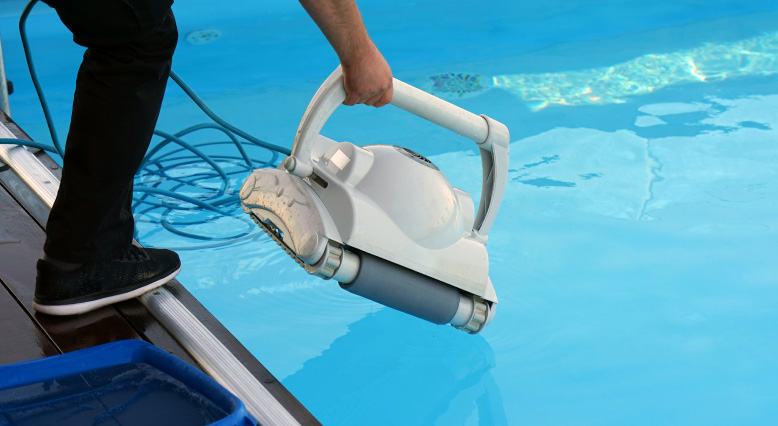
3. Chlorine use isn't safe
Chlorine is one of the most widely used chemicals for maintaining swimming pools. The chemical plays an important role in eliminating microorganisms that may be present in the pool water. So, there’s no doubt about it – chlorine use is crucial if you want swimming in your pool to be a safe experience for you and your family.
However, you need to remember that you should use chlorine in moderation and as per requirements. For instance, if you add excessive amounts of chlorine to your swimming pool, i.e. well beyond what’s needed, you may end up jeopardizing the safety of your pool. So, as long as you’re careful with your chlorine use, you’ve got nothing to worry about.
4. Showering before taking a dip in the pool makes no sense
Many people are of the opinion that taking a shower before entering a swimming pool is a waste of time. However, let us tell you that this opinion is not based on facts. According to science, when you enter a swimming pool without showering, you take your sweat, body oils, cosmetics, and other organic compounds into the water.
Over time, these organic compounds can build up inside your swimming pool and eventually make your pool water dirty. They can also contribute to the growth of microorganisms in the pool water. However, when you take a shower, these organic compounds are washed away. So, remember to take a 5-minute shower before you enter your pool the next time – you’ll be saving your pool and yourself a lot of trouble.
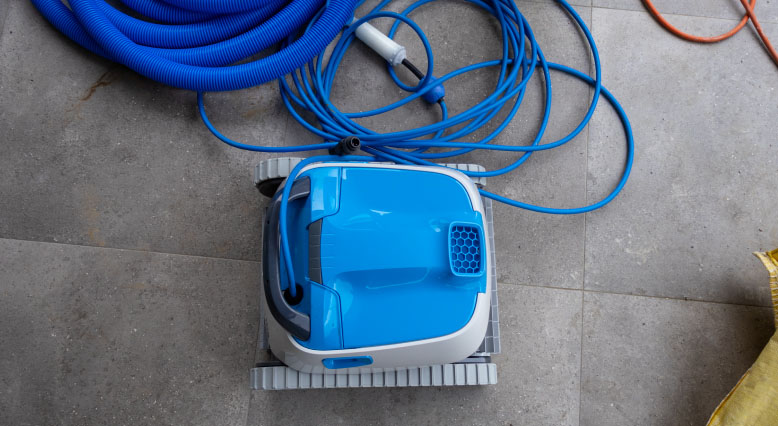
5. Automated pool cleaners are much better than manual pool cleaning methods
It’s the age of automation and there’s no doubt about the fact that an automated pool cleaner can provide a great degree of convenience. However, while automated pool cleaning systems and solutions are much more convenient than manual methods, it’s not right to say that they are better.
Sure, you can invest in a robotic pool cleaner and program it to clean your pool whenever you want. It’ll also probably do a good job. However, when it comes to cleaning a swimming pool, good may not always be good enough. What you should ideally aim for is a thorough cleaning, and this can only be achieved through manual cleaning methods like vacuuming and scrubbing.
6. Pool water chemistry isn't affected by rainwater at all
The first few minutes of a long spell of rainfall typically consist of raindrops that have high acid content. This can have a direct impact on your pool’s alkalinity and pH. Quite simply, rainwater can disturb your pool’s water chemistry. Don’t believe us? Leave your pool open the next time there’s rain or a storm in your area, and check it the next day.
You’ll find that the water has turned a bit greenish and cloudy. This will be due to the acid content carried by the rain and deposited in your pool water. So, our advice would be to protect your pool during rainfall. Even if you can’t prevent the rain from entering your pool, you should waste no time and test the water as soon as the rain stops. The quicker you take action, the better it will be for your swimming pool.
7. There's no chlorine requirement for saltwater pools
Again, this is a myth that has an element of truth to it. The fact is that you don’t need to add chlorine manually to a saltwater pool. However, this doesn’t mean that saltwater pools don’t need chlorine at all.
Saltwater pools need chlorine just like freshwater pools do, but the difference between the two lies in a device known as saltwater chlorinator. Most saltwater pools come with this device as a part of the package, and it converts salt into chlorine.
To Conclude
So, there you have it – 7 of the most common swimming pool maintenance myths, busted! Before you invest in a pool, be sure to do proper research into which pool style would best suit your needs as well as all the maintenance requirements that would be required.

